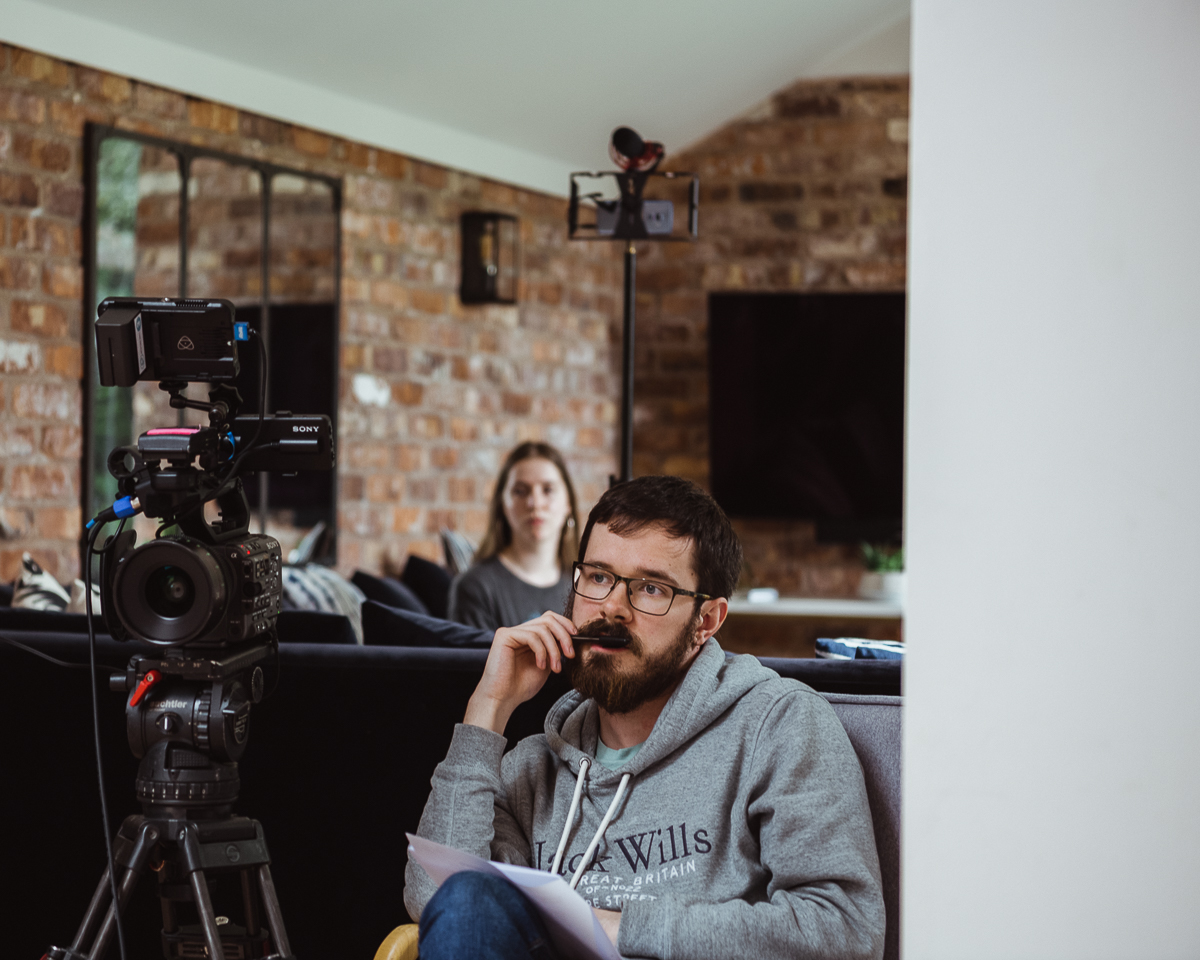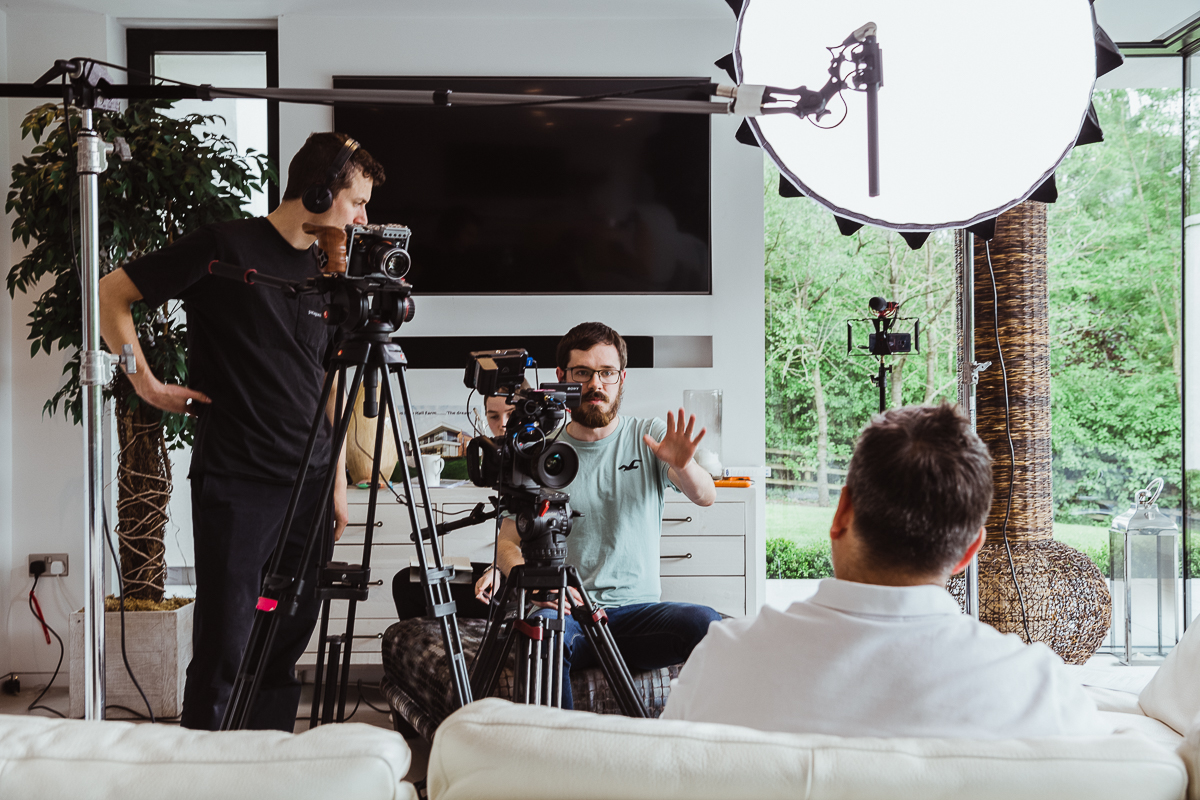Our Featured TM Pro Member today is Joe Lajszczuk, Assistant Producer.
Why did you decide the AP route was where you wanted to work?
I’ve always been interested in unscripted TV but I didn’t realise it was what I wanted to do until I did two weeks work experience when I was 18. I loved helping out with bits of research and shadowing a director on a shoot. I definitely got the bug for making telly at that point but didn’t really know the structure of the industry and what kind of routes people took. It wasn’t until I’d finished university and started working at Meridian Line Films that I started to work out the route I wanted to take. Being an AP is brilliant because you have more responsibility but you still have opportunities to watch and learn from your PD. It’s a great role to boost your skills and get more confidence. 
How did you get into AP-ing?
I started out in the industry before going to university when I worked as an office runner/production assistant at True North Productions in Leeds. It was my first proper telly job and it was a great insight into the industry.
I then went on to study International History & Politics at Leeds, so didn’t take a ‘traditional’ route by studying a TV production course or similar.
After finishing university, I was hired as a Junior Researcher by an exec I’d met at True North called Liz McLeod. She’d founded Meridian Line Films with Nacressa Swan and I worked on various productions there, starting as a Junior Researcher before working up to a Senior AP level. We were a really small, close-knit team at Meridian so you’d find yourself in several roles at once, from researching, to developing ideas to helping with post-production paperwork.
After working as a Researcher for 2-3 years, I was given my first Assistant Producer role on a show called Smart China for Discovery, which was all about some of the mind-blowing science going on in China, from researching dark matter, to detecting cosmic rays to tracking endangered tigers.
How did you learn to be an AP? What skills do you need?
It’s all about experience and surrounding yourself with people who are happy to answer any questions you have. By the time I’d stepped up from Researcher to AP, I felt confident in taking on more responsibility and that’s largely thanks to working hard as a researcher for 3 years and really finding my feet in the industry.
There are now quite a few specialist AP roles, including archive, development, casting, shooting. I’d say it’s about getting experience in a few different areas before deciding if you want to specialise in one particular area. I have AP friends who just want to cast but others who don’t want to box themselves into a niche and others who just want to be on location all the time. I’d say definitely take your time in discovering what kind of AP you want to be.
You need good perseverance and brilliant problem-solving skills as no production ever runs exactly to plan. It’s also the point where you need to start demonstrating some leadership skills as you might be working with junior researchers/researchers whom your PD is relying on you to guide and manage. Developing all these skills as an AP will really help when you step up to being a Producer, as I found when I got my first Producer credit at the end of last year. 
What kinds of programmes do you work on?
More recently, I’ve been working on digital shows with the brilliant team at Art of Truth. We worked on our first commission for Channel 4 digital called Confessions Of A… (which is on Channel 4’s Facebook and Instagram) which was all about naughty workplace confessions of bouncers, beauticians and cabin crew. It was definitely different from the specialist factual work I’ve done before but I absolutely loved it. I’ve never laughed so much on a production; it was great fun.
What are the most challenging projects to work on?
I’ve found that the most challenging things to work on are those pilot/first time commissions where you’re building your processes and protocols from scratch the series hasn’t yet become a well-oiled machine. You have to convince contributors to take part in a series they haven’t yet heard of. As I’ve worked with small indies, that’s doubly challenging when you’re still establishing your name. It makes you even prouder when you manage to pull it off.
I’ve also worked on a digital series where I was given a chance to be an Edit Producer on some of the episodes. I remember that being super challenging as the footage had already been shot so I had to construct a story from rushes I had never seen and I had no idea what the story was. However, it was also a great chance to unleash my creativity and it was very rewarding seeing the final films.
What would be your advice to someone trying to get into your area of expertise?
I think TV, no matter what role you’re interested in and whether we like it or not, is largely about relationships. Make sure you go to all the networking events and nurture relationships with people from across the industry – directors, talent managers, execs, PMs.
I’d also advise anyone interested in stepping up to AP level to become multi-skilled. Get hold of a camera, sit in on the edit if you can, show interest in helping with budgets, schedules, call sheets and risk assessments. I wish I’d realised this sooner but it’s definitely helped me take on different roles.
What are you watching right now?
I love sitting on iPlayer/Channel 4 and just looking back through all the docs on there. I love modern history so I’m watching Once Upon a Time in Northern Ireland at the moment which is one of the best series’ I’ve ever seen. I’m also finding myself spending more time on Channel 4’s Documentaries YouTube Channel. I watched the new Untold recently by Zandland called the Secret World of Boy Racers which was great.
I’ve just been to Sheffield DocFest and managed to get tickets to see Total Trust, a really brave film. I didn’t manage to catch 20 Days in Mariupol and The Deepest Breath which I’m desperate to see but I’ll have to wait for a cinema/TV release on those.

Why do you like using Talent Manager?
I feel it makes job applications much easier. Employers can quickly glance at your profile to see your credits or download your CV directly.
In particular, what are the benefits to being a Pro member?
Thank you to Joe for chatting to us. He is available for work right now, so check out his TM Profile if you are looking for brilliant APs or if you'd like to network and connect with another friendly TM freelancer!
If you want to find out more about upgrading your account and going Pro, find out more here.
